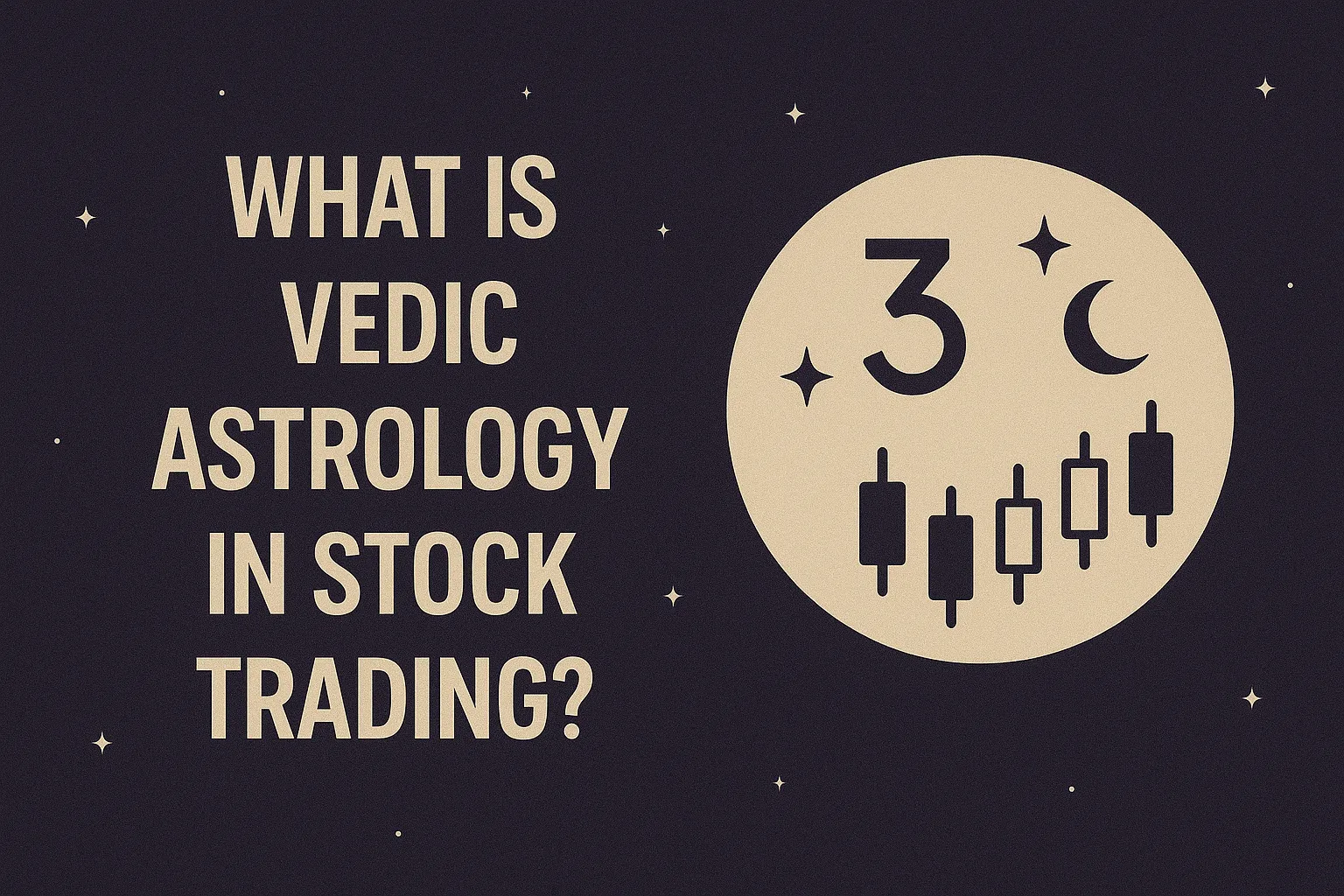What Is Vedic Astrology in Stock Trading?
Vedic astrology, known as Jyotish Shastra in Sanskrit, is an ancient Indian system that uses planetary movements and cosmic patterns to interpret events on Earth. In recent years, it has found a unique application among stock market traders who seek better timing, psychological clarity, and market forecasts.
In this guide, we explain how Vedic astrology can be used in stock trading and how traders integrate it with their financial strategies.
The Concept Behind Vedic Astrology in Trading
Unlike Western astrology, Vedic astrology is deeply mathematical and time-based. It considers the exact planetary positions at the time of birth (natal chart) and their ongoing movements (transits) to predict trends and behaviors.
When applied to stock trading, Vedic astrology does not claim to replace technical or fundamental analysis. Instead, it offers a complementary system for timing, market psychology, and energy alignment—three elements crucial for consistent success in trading.
Key Components of Vedic Astrology Used in Stock Trading
1. Planetary Transits (Gochara)
Transits show how current planetary movements affect the market and traders individually. For instance, a Jupiter transit may boost optimism, while Saturn’s movement could cause fear or correction.
2. Nakshatras (Lunar Constellations)
Nakshatras influence daily energy and emotional patterns. Certain Nakshatras like Pushya, Ashwini, or Rohini are considered favorable for trading decisions and market entries.
3. Dashas (Planetary Periods)
Dashas indicate longer-term cycles in a person’s life. A trader in a favorable Venus or Mercury Dasha may perform better in financial activities, while a Mars or Rahu Dasha may bring risk or instability.
4. Birth Chart (Kundli)
Personal charts reveal psychological strengths, risk-taking tendencies, and sectoral inclinations. A person with strong Mercury may do well in trading, while a dominant Jupiter might prefer long-term investing.
Why Traders Use Vedic Astrology
- Timing Entries & Exits: Use Nakshatras and transits to plan the best moments to buy or sell.
- Mental Discipline: Aligning with planetary energies may help reduce fear and greed.
- Risk Awareness: Helps understand personal risk tolerance based on planetary influence.
- Sectoral Focus: Astrology can guide traders toward sectors aligned with their planetary strengths (e.g., tech for Mercury, banking for Jupiter).
Does Vedic Astrology Really Work in Trading?
While there is no scientific proof that astrology guarantees success in the stock market, many traders use it as a timing tool or a psychological framework. Some combine it with price action, indicators, or fundamental data to improve their edge.
The key is not blind belief but strategic use—especially when it aligns with other signals.
Combining Astrology with Technical Analysis
Many modern-day astrologers and traders use hybrid approaches:
- Use astrology for macro timing (entry months, favorable weeks).
- Use technical analysis for exact entry points, stop-loss, and targets.
- Use psychology to manage emotions influenced by planetary energies.
This three-pronged method is becoming increasingly popular among disciplined investors.
Conclusion
Vedic astrology is not a substitute for stock market knowledge but can be a powerful tool for those who value timing and holistic strategies. By understanding the influence of planets, Nakshatras, and personal charts, traders can potentially make more aligned and confident decisions.
Whether you are a full-time trader or a part-time investor, learning the basics of Vedic astrology can offer a unique and often insightful perspective into the unseen forces of the market.
FAQs
1. Is astrology reliable for stock trading?
It can be a useful timing tool, especially when combined with technical or fundamental analysis. Many traders use it to avoid trading on high-risk days.
2. Do I need my birth chart to use Vedic astrology in trading?
While not mandatory, having a birth chart helps personalize astrology-based decisions and improve accuracy.
3. Which planet is best for traders?
Mercury (intellect, analysis) and Jupiter (wealth, optimism) are most favorable for traders and investors.
4. Can astrology predict stock crashes?
It can signal high-risk periods using transits and planetary alignments, but it cannot predict exact market movements or levels.
5. Is Vedic astrology popular among traders in India?
Yes. Many Indian traders use Panchang, Nakshatra charts, and astrologers to guide market timing, especially during major events like Muhurat trading.
